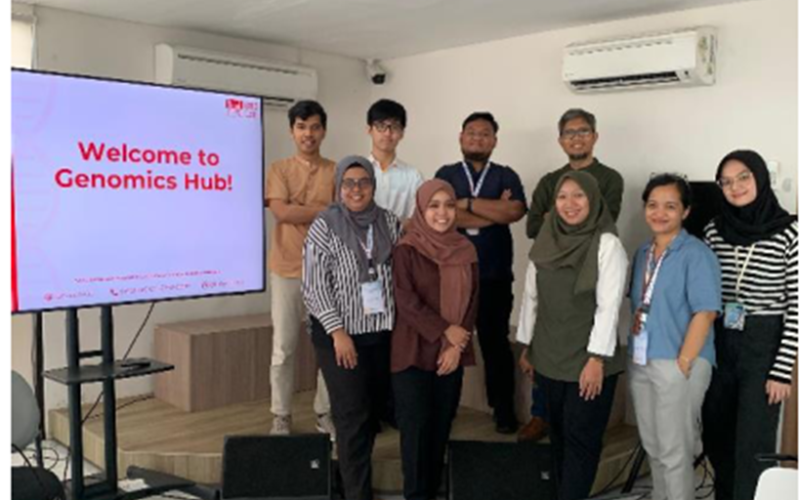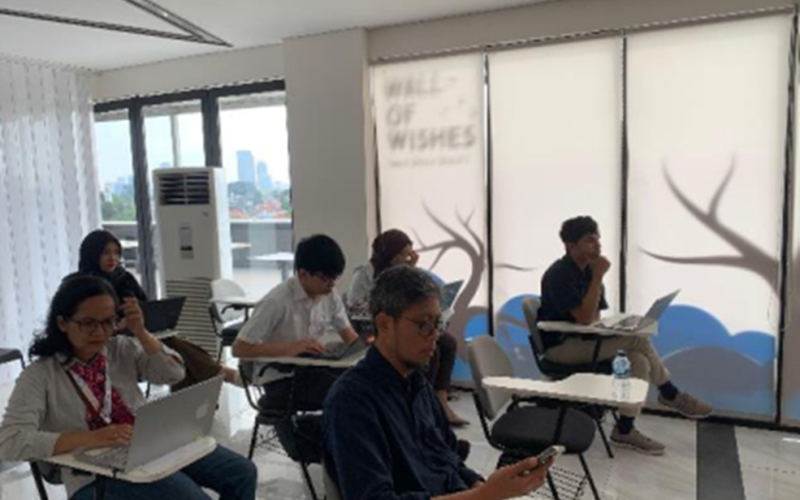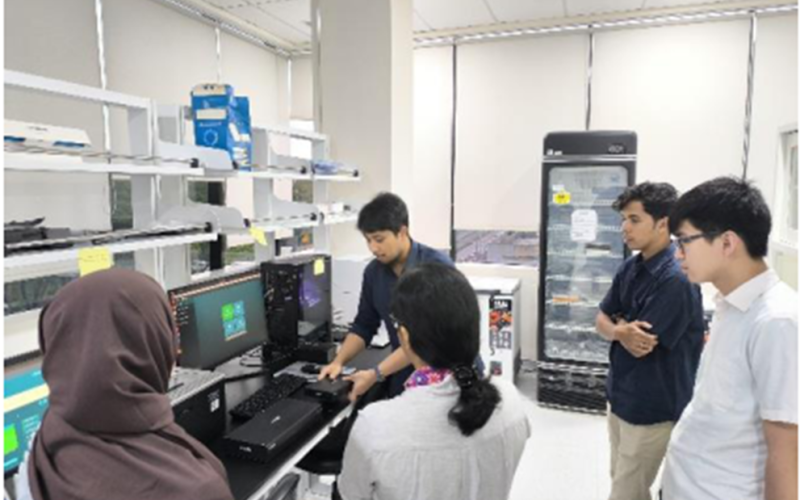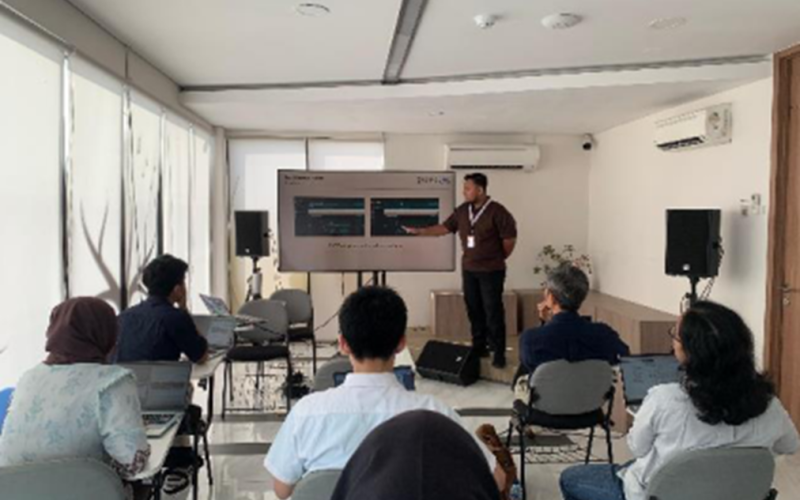Yogyakarta, July 1, 2024 – Two lecturers from the Faculty of Biology Universitas Gadjah Mada (UGM) participated in advanced training on the Next Generation Sequencing (NGS) platform organized by Genomic Solidaritas Indonesia (GSI). This three-day training covered theoretical and practical aspects of using the Oxford Nanopore Technologies (ONT) platform. Participating in this training is a part of the commitment to advancing bioinformatics research in Indonesia. The implementation of High-Performance Computing (HPC) to process large biological datasets aligns with UGM’s research goals, and this training equips researchers with the necessary skills to effectively utilize these advanced tools.
Day 1: Introduction to ONT Platform and Basic Bioinformatics
The first day of the training consisted of theory and practical sessions. The theory session introduced participants to the ONT platform, the latest NGS technology that uses electrical current through nanopore proteins. There was also a demonstration of using the minKNOW software for ONT and EPI2ME LABs for post-NGS data processing. The practical session introduced basic bioinformatics programming using bash, including file systems, post-NGS data reading, file management, software management using Mamba, and de novo alignment techniques.
Day 2: Advanced ONT Features and Data Processing
The second day continued with the theory session on the advantages of ONT over other platforms, particularly the Adaptive Sampling concept, which makes ONT flow cells more efficient and the data obtained more specific. The practical session included assembly, variant calling, annotation, and an introduction to Biopython, a Python package for bioinformatics data processing. The second day training concluded with a lab visit to observe the sequencing infrastructure at GSI Lab.
Day 3: Metagenomic Analysis and Final Project
The final day focused on practical sessions and the final project. Participants learned about 16s Metagenomic Analysis using EPI2ME Labs through the Command Line Interface (CLI). The training concluded with a final project, where participants processed ONT fastq (.fastq) files into bam (.bam) files for further analysis using R Studio or Python.
Importance of NGS Analysis in Supporting Biosecurity Topics to Achieve Food Security
Advancements in NGS tools have significantly enhanced research in life sciences, allowing for more specific and in-depth studies. Understanding the genetic material of organisms is crucial for comprehending their activities and life processes. This is evident in the rapid progress of precision medicine, which reveals individual uniqueness through genetic analysis.
In the PUAPT research program, the Faculty of Biology UGM has mandated biosecurity in land and water management within the Food Security working group. These tools are invaluable for studying the rhizosphere microbiome community, microbe-plant interactions, the impact of microbiomes on fertilizer and pesticide usage, and gene expression differences in food crops under specific land and water management treatments. NGS analysis plays a crucial role in supporting these efforts to achieve sustainable food security, in line with the Sustainable Development Goals (SDGs), particularly SDGs No.2 of zero hunger, achieving food security and improved nutrition, and SDGs No.13 related to combating climate change to support sustainable agriculture.





